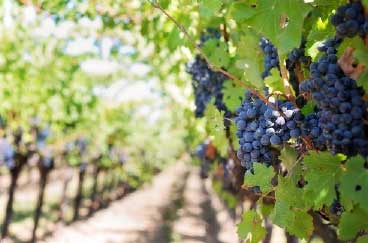Riesling, Chardonnay, Sauvignon Blanc, Pinot Noir— these are just a few types in the long list of wines available. Some wine is made in a small vineyard with only a small patch of grapes while others are produced in vineyards composed of rows upon rows of grapes.

Wine is well-known around the world, especially in Italy, but did you know that Canada also has a growing number of vineyards? Currently, it’s the world’s 39th largest producer of wine. However, when it comes to ice wine, Canada is the world’s largest consistent producer.
Wine is a significant contributor to many countries’ GDP and there are many people involved. There are many people in the industry who are called wine makers. This career profile will focus on lead winemakers in a general sense. Many times, individuals will have more specialized job (and titles!) than what is mentioned here.
Winemakers make wine
Winemakers produce wine by following the process of winemaking from grape to bottle. Their job depends on the size and focus of the winery, but essentially, they make wine. Winemakers work with viticulturists for future planting programs and make sure that grapes are grown and harvested at the correct times of the year.
Winemakers lead and manage teams to produce wine in compliance to regional regulations. This involves coordinating tasks between the vineyard and winery. During these tasks, they supervise the workers to ensure that the wine is created correctly. If the vineyard is short- staffed, they conduct cellar activities and other necessary tasks.
Additionally, winemakers perform analytical tests such as pH, titratable acidity and dissolved oxygen. Finally, winemakers also perform business and administrative duties such as scheduling production, keeping track of records and performing payroll.
Winemakers have degrees in winemaking
Although formal education might not be required, it is much easier to become a winemaker with a degree. It is possible to start from the bottom and work your way up, starting as a general labourer performing duties such as cleaning and bottling wine.
However, it is common for employers to look for individuals with a post-secondary degree in viticulture, enology, chemistry or food science.
Due to the popularity of wine making, there are many schools that offer degrees in winemaking. In these programs, students learn about winery operations, viticulture and sales. Courses for these programs generally include viticulture biology, wine chemistry and winery management.
Check out the full program here
Winemakers direct operations
Winemaking involves a lot of steps from harvesting to bottling. In order for production to move smoothly, winemakers direct overall operations and assign duties to those in the field. For example, they may direct field labourers to harvest grapes or begin the bottling process. If they are successful, they produce high-quality wine that exceeds customer expectations.
Winemakers keep track of records
Winemakers maintain a meticulous record of all winemaking activities, as this helps them with the winemaking process. These records help winemakers identify the wine and its components which include vintage, appellation and alcohol tax class throughout a wine’s stages of life.
There are different methods available, such as handwritten logs or computerized versions, but this depends on personal preference.
Winemakers have developed leadership skills
Making wine by yourself is an almost impossible task. The only way you would be able to manage is by making a really small quantity of wine. Winemakers, however, make a lot more than then just a few bottles of wine. One ton of grapes can result in up to 1440 bottles of wine! To keep up with the amount of labour involved, winemakers hire and work in teams.
Winemakers who act as supervisors must have well-developed leadership skills to supervise other staff and ensure that the development of wine proceeds smoothly.
Winemakers are planners
You might be familiar with the fact that some wines have a vintage, meaning that a wine is made from grapes that were all or primarily grown and harvested in a single year. Producing aged wine takes time and a certain amount of planning. Winemakers effectively know when to plant and harvest grapes to create the best quality wine from a certain vintage. Everything comes together to create an incredible drink!
Winemakers must have technical knowledge
On the surface, winemaking is simple, but there is a lot more to winemaking than meets the eye. Winemakers must acquire a large body of technical knowledge through experience and independent study. Having strong technical knowledge allows winemakers to problem solve by understanding the biological and chemical events that occur during winemaking.
Winemakers are patient, creative and have developed palates
Being a winemaker requires a range of skills however there are a few which are more essential than others. These skills include:
- Patience – Some wines age for a few months while others age for many, many years. Winemakers stay patient during the winemaking process because it leads to a superior product. They know that grapes take time to grow and rushing production during the winemaking process is something they simply cannot do.
- Creativity – Winemakers need to be creative, as wine is an art and a science. These professionals understand how the soil affects a grape in order to bring out its maximum potential. Creative professionals create new tastes never “tasted” before.
- Taste and Smell – Any winemaker will tell you that a winemaker needs to have a superb sense of taste and smell to distinguish the smallest of details. Through analytical and acute tasting, winemakers make decisions that impact the overall taste of the beverage.



